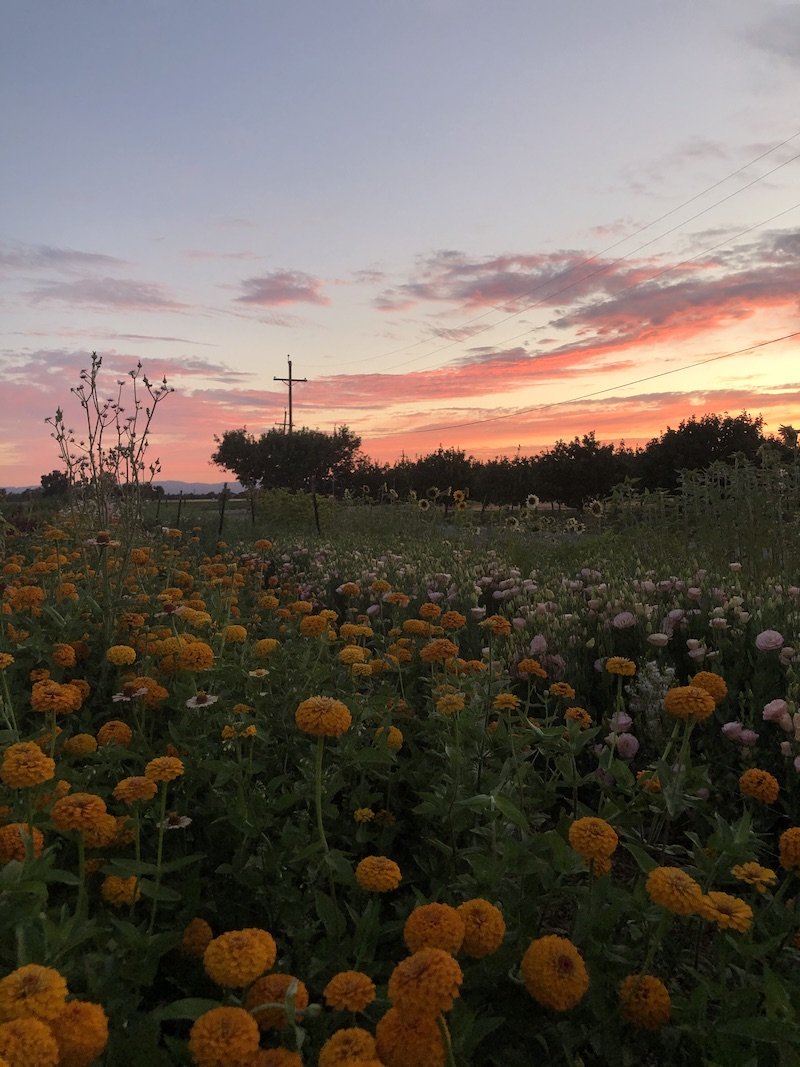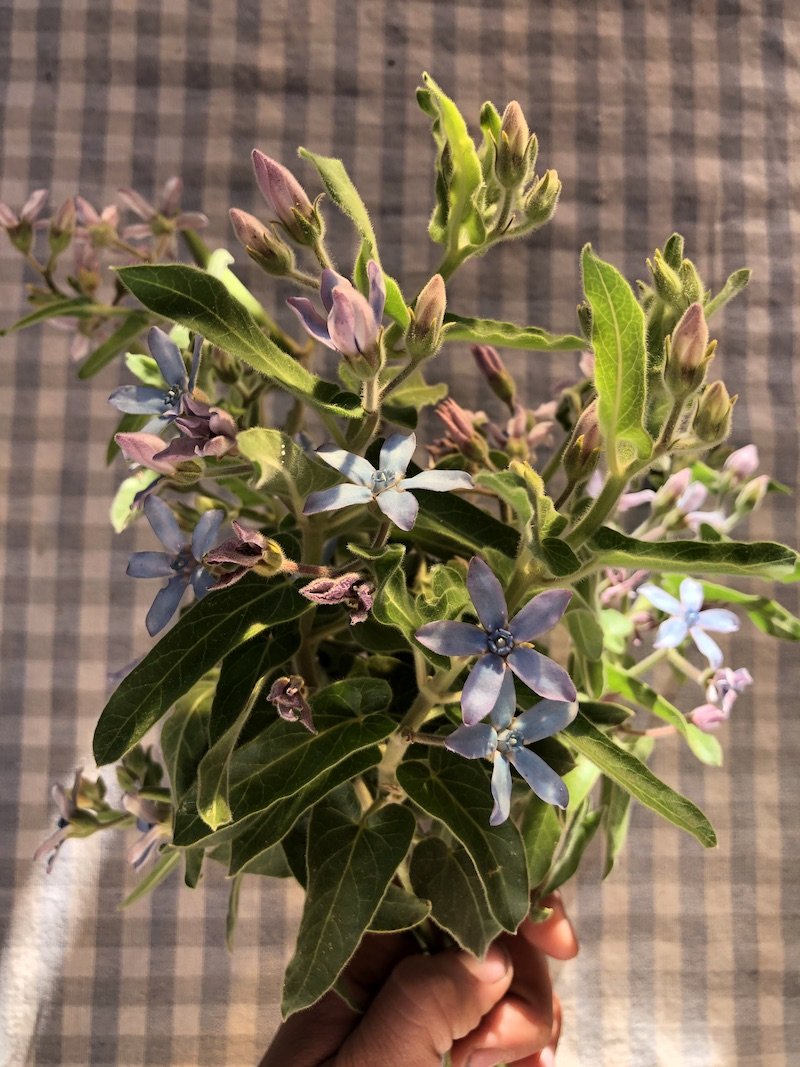
Dewey Farms Flowers (formerly known as Feral Flora)
Dewey Farms Flowers grows specialty cut flowers for the greater Sacramento area and bay area using no-till methods. We love animals, birds, snakes, bugs, flowers, and growing things. Our goal is to grow flowers without ever harming any of my neighbors (aka the native flora and fauna).
about
Dewey Farms Flowers was started by Katie Seybold and Hannah Snyder as Feral Flora Farm in 2019.
Dewey Farms Flowers grows a diverse assortment of specialty cut flowers for both local farmer’s markets and floral designers from February-November. We grow for a variety of customers—both wholesale for florists and flower shops, as well as making mixed bouquets and arrangements for farmer’s markets and custom orders.
In our first years, we operated a patchwork of small field space on Dewey Farms, just north of Woodland, Ca (Occupied Patwin land). Both of our partners are brothers who help run Dewey Farms, a family farm that has grown almonds, walnuts and pistachios for over 100 years. We now operate as Dewey Farms Flowers as we’ve expanded to steward a continuous acre on this fertile soil that Yolo County is known for.
We continue to steward this land to not only grow beautiful specialty cut flowers, garlic, and native plants for the region, but to nurture and maintain our soil health and build habitat for wildlife.
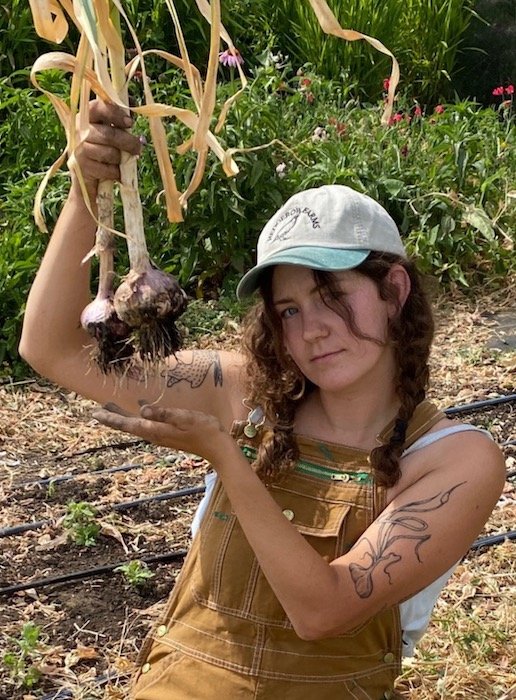
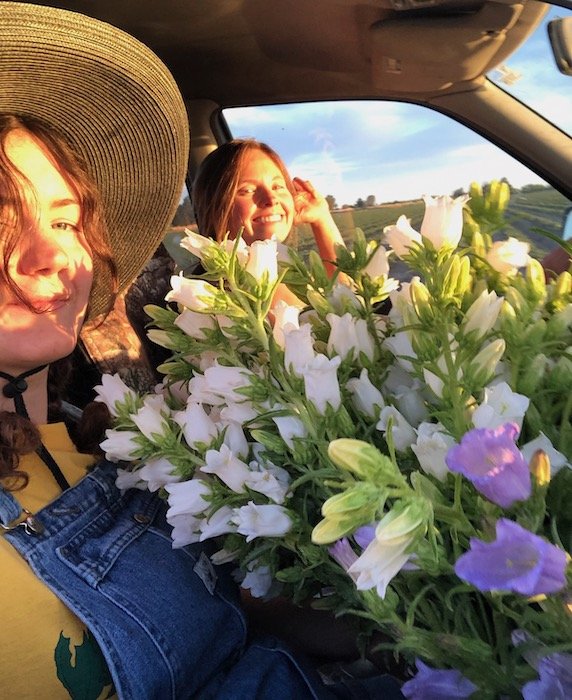
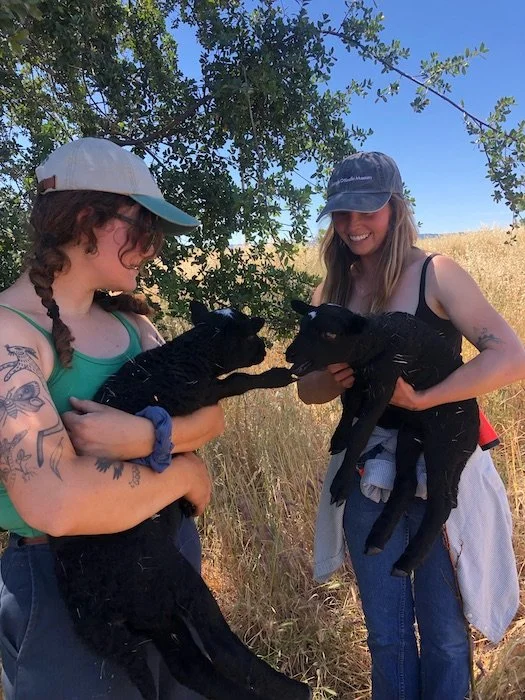
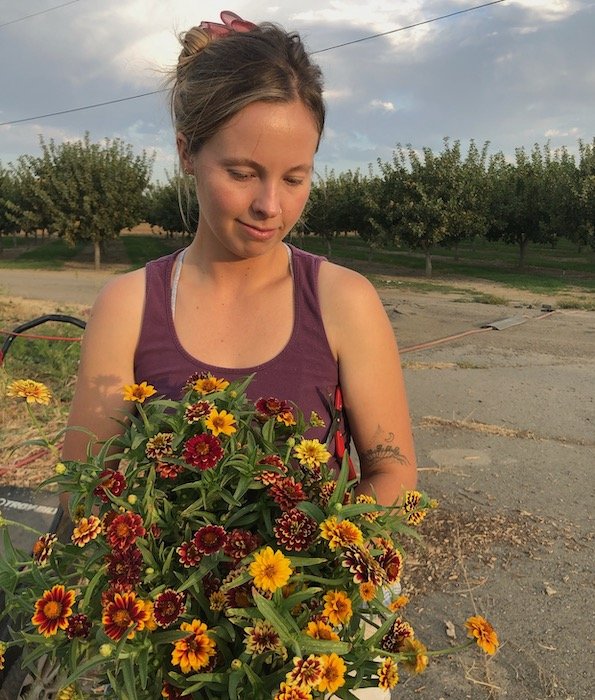
environmental stewardship
Dewey Farms Flowers is backed up to Cache Creek, and is committed to implementing practices that protect our watershed and all the plants and animals dependent upon it. Here are just a few things we’ve implemented in our first year.
Pesticide free: While the farm is not certified organic, we use practices considered to be organic (and beyond) - including using no harmful chemicals or pesticides or synthetic fertilizers. Pests are controlled using organic methods and through creating habitat for beneficial insects and birds.
Pollinator row: A quarter of one of our fields has been turned into a pollinator row, filled mostly with California native plants specific to our watershed.
Wildlife habitat: In addition to the pollinator row, we plan on creating bird habitat during the slow season this coming winter, by building owl, kestrel and bat boxes, and installing raptor posts.
Soil health: The farm is on a 100% no-till system, using occultation, the addition of ample organic matter and cover cropping to sequester carbon.
